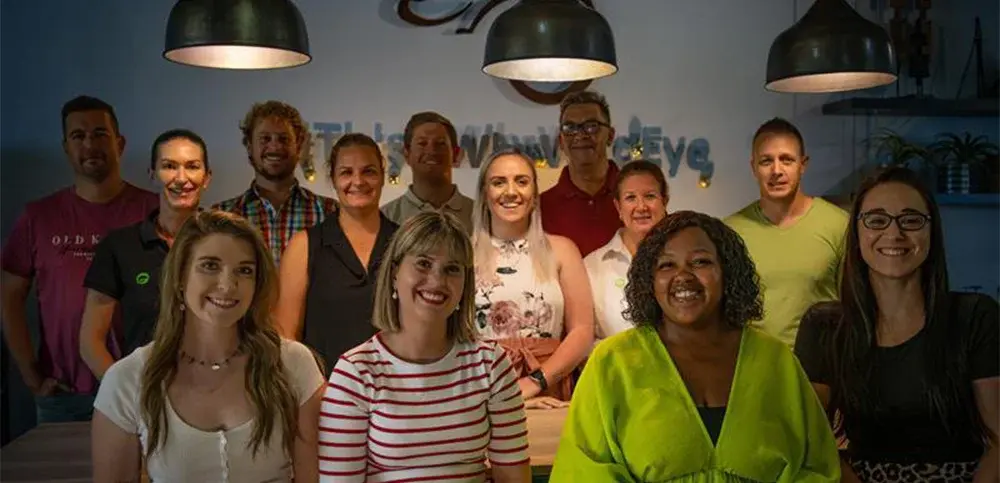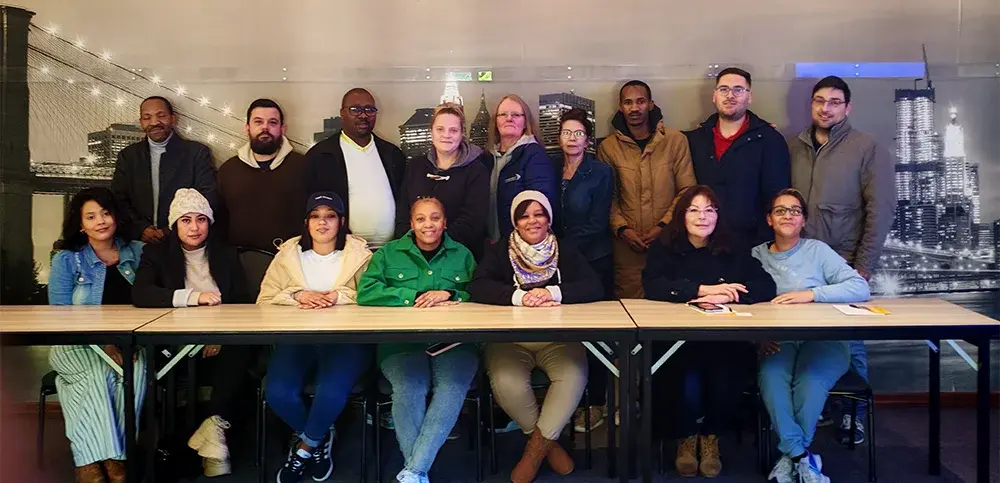
People first, then strategy and execution to reverse a decline and attract a strategic investor
A ten-month program that reversed declining revenue trends, realigned the business, and ultimately positioned Digitata for an exciting acquisition by a strategic investor with strong avenues for growth.
At the beginning of 2021, Digitata, a technology solutions provider, and now portfolio company of Digital Ecosystems, struggled to navigate its way forward as it looked to scale after 15 years in operation. Having negotiated a management buyout from the founders, the new executive team felt they needed a different strategy to solve a series of challenges which included unhappy clients followed by increased client churn, limited growth, and risk that the management buy-out would fail. The team was unhappy, not aligned and working individually rather than as a team.
Initially, CEO Richard Walton read up on the different methodologies for improving a business from a team and strategic perspective and tried implementing some of these approaches. But upon honest reflection, Richard and his team acknowledged that while the principles weren’t difficult to understand, execution and implementation were challenging, and they should seek independent and impartial guidance to support them on their journey.
Richard did some research and came across Grow. Initially the thought was that the solution lay in fixing the business strategy, but early on in discussions with their Grow coach they realised they first needed to work on fixing the challenges in the executive team. The Grow Scaling Management Teams (SMT) program was introduced into the business and the executive team members, who were all former managers in the business, embarked on the 10-month program.
This program included 7 workshops over the 10 months, where the members immersed themselves in the fundamental leadership and business principles needed for scaling a business. Thanks to the design of the program, support was provided in between workshops in the form of one-on-one coaching for each executive combined with field work to ensure that the principles learned would be effectively inculcated into daily business life at Digitata.
As an output of the SMT program, executive team member roles were defined more clearly with each member of the executive assigned into clear functional roles including CEO, COO, CCO, CTO and CFO. Some members were assigned new roles better suited to their natural strengths and interests. These functional roles were defined with key accountabilities for each of the executive members.
The executive team learned to create more time for themselves to move beyond the reactive space of the urgent, important operational issues, and start to work in the proactive space of the important, not urgent issues, like developing their strategic plan.
The benefits of the SMT program then motivated the leadership to add another element to their support and growth in the form of the Grow Scaling Up coaching program. This program included strategic planning and the development of operational excellence, which ran concurrently towards the latter part of the SMT program.
A regular cadence of meeting as a team was implemented which improved the alignment of the team, allowing the team to plan more effectively, collaborate better, debate and explore new ideas, opportunities, and approaches to doing business.
A formal strategic planning framework was implemented. There was now a new outlook for the team, who could now envisage a brighter future for the company with new possibilities and start believing that what they had originally envisaged could happen.
An effectively restructured executive team with clear roles and accountabilities, that had clarity of strategic direction and execution, helped the team to start building new products, winning back lost customers, winning new customers, and optimising the efficiencies of the business.
The executive team then started looking at an alternative business model which included looking for partners who would complement and add value to the business. The extent of the team alignment was put to the test when the team had to agree whether they should proceed with a potential private equity deal, and if so, how. After vigorous and robust discussion, the team agreed to move ahead, and finalised the deal. The benefits of the deal are clear: additional investment to drive new business opportunities and revenue, expertise in the telco industry, plus strategic input, industry knowledge, capabilities, and resources to support new product development.
The SMT program, which was the start of Digitata’s new journey, was so successful that the executive team agreed to put the middle management team onto the next program shortly after the executive team had completed their program, to further strengthen the foundation that would be fundamental to supporting the continued growth of the business.





